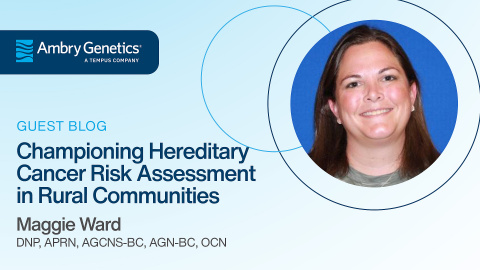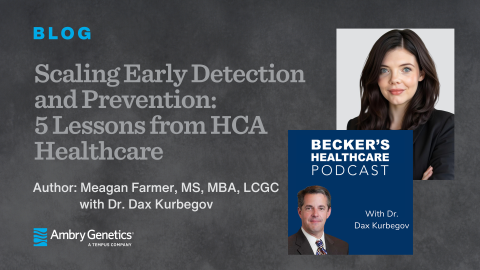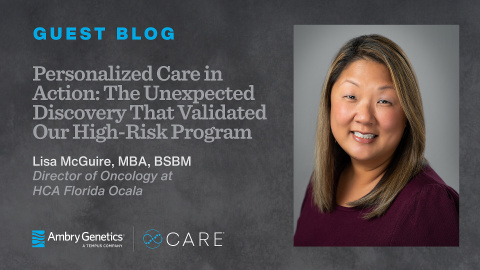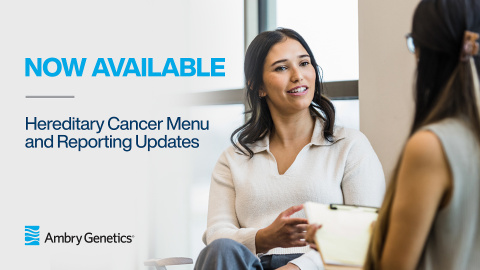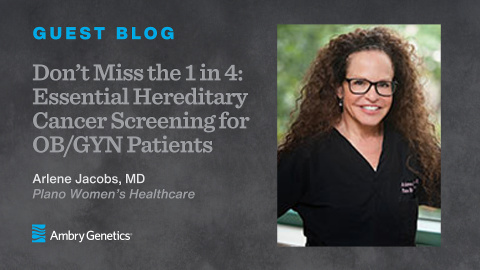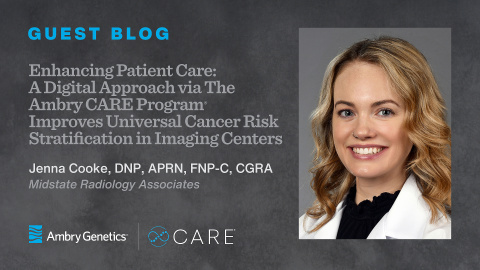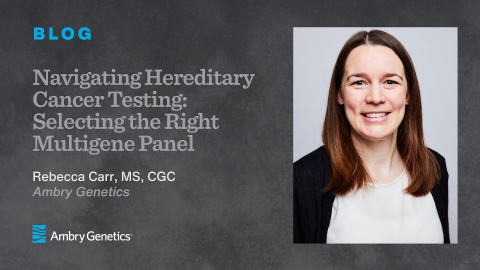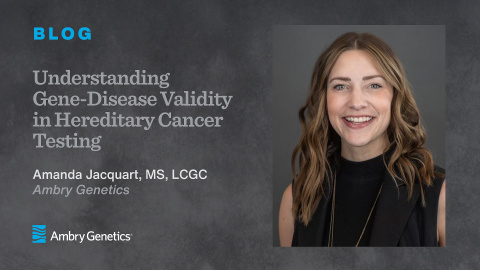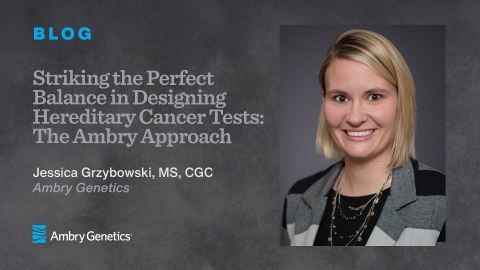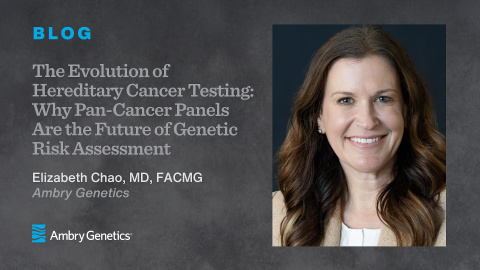- By Maggie Ward, DNP, APRN, AGCNS-BC, AGN-BC, OCN
- Posted September 10, 2025
Championing Hereditary Cancer Risk Assessment in Rural Communities
As an Advanced Practice Registered Nurse (APRN) in Wichita, KS, I’ve spent the last 20 years dedicated to oncology care. I lost my sister-in-law to breast cancer at a young age—she was only 29 years old when she was diagnosed and passed away at the age of 36. I became particularly interested in inherited cancers because of my niece. I wanted…
- By Meagan Farmer
- Posted August 7, 2025
Scaling Early Detection and Prevention: 5 Lessons from HCA Healthcare
Only a fraction of high-risk individuals ever learns about their inherited cancer risk. But it doesn’t have to be that way. In a recent Becker’s Healthcare podcast, Dr. Dax Kurbegov, Senior Vice President at HCA Healthcare’s Sarah Cannon Cancer Network, shared how his team is closing that gap by building a scalable model for risk assessment…
- By Lisa McGuire, MBA, BSBM
- Posted June 4, 2025
Personalized Care in Action: The Unexpected Discovery That Validated Our High-Risk Program
As the Director of Oncology at HCA Florida Ocala, I've witnessed firsthand how the combination of innovative technology and dedicated healthcare teams can transform patient outcomes. When we launched our high-risk women's program in 2023, I served as project manager, coordinating the implementation of the Ambry CARE Program® (CARE) across our…
- By Lauren Csukardi
- Posted April 22, 2025
April 2025 Hereditary Cancer Menu and Reporting Updates
At Ambry, we’re continuing our track record of scientific innovation and discoveries with our latest hereditary cancer testing menu enhancements and reporting updates—powered by Ambry Classifi®. Our peer-reviewed, published gene-disease validity (GDV) scheme enables the enhanced assessment and characterization of RPS20 for colorectal…
- By Caitlin Reid, MS, CGC
- Posted April 11, 2025
Don't Miss the 1 in 4: Essential Hereditary Cancer Screening for OB/GYN Patients
A conversation with Arlene Jacobs, MD, Plano Women’s HealthcareCaitlin Reid, CGC: Dr. Jacobs, you’ve been passionate about screening your patients for hereditary cancer. Can you tell us why you use hereditary cancer risk assessment in your OB/GYN practice? Arlene Jacobs, MD: Many of my patients see me not only as their OB/GYN, but…
- By Jenna Cooke, DNP, APRN, FNP-C, CGRA
- Posted December 18, 2024
Enhancing Patient Care: A Digital Approach via The Ambry CARE Program® Improves Universal Cancer Risk Stratification in Imaging Centers
Identifying individuals at increased cancer risk is crucial for prevention and early cancer diagnosis. Integrating a risk assessment tool into imaging centers supports proactive cancer risk management by combining risk evaluation with immediate diagnostic capabilities. A retrospective study was conducted across 15 Midstate Radiology Associates…
- By Rebecca Carr, MS, CGC
- Posted December 17, 2024
Navigating Hereditary Cancer Testing: Selecting the Right Multigene Panel
Navigating the complex world of genetic testing can be daunting, especially with the rapidly evolving landscape of hereditary cancer testing. For healthcare providers, choosing the right hereditary cancer test and laboratory is crucial to offer the best care for their patients. The Evolution of Hereditary Cancer Testing Genetic testing was…
- By Amanda Jacquart, MS, LCGC
- Posted December 4, 2024
Understanding Gene-Disease Validity in Hereditary Cancer Testing
My favorite thing about my role as a Genomic Science Liaison (GSL) at Ambry is that I get to apply my training in genetic counseling and experience working in an oncology clinic to conversations with healthcare providers about genetic testing and technology, helping them make the most informed decisions for their patients. In this blog, I have…
- By Jessica Grzybowski, MS, CGC
- Posted October 31, 2024
Striking the Perfect Balance in Designing Hereditary Cancer Tests: The Ambry Approach
In the fast-moving world of genetic testing, designing and updating a hereditary cancer portfolio and each test it includes is a balancing act. It’s about making sure we include genes that matter clinically while steering clear of those with uncertain links to cancer. At Ambry, we’ve perfected this balancing act by sticking to a process rooted…
- By Elizabeth Chao, MD, FACMG
- Posted October 17, 2024
The Evolution of Hereditary Cancer Testing: Why Pan-Cancer Panels Are the Future of Genetic Risk Assessment
Hereditary cancer testing has changed dramatically over the past decade, reshaping how healthcare professionals diagnose and manage genetic risks. Initially, testing focused on specific genes like BRCA1 and BRCA2, linked to breast and ovarian cancers. These gene tests were quite limited, only looking at a small set of mutations…
